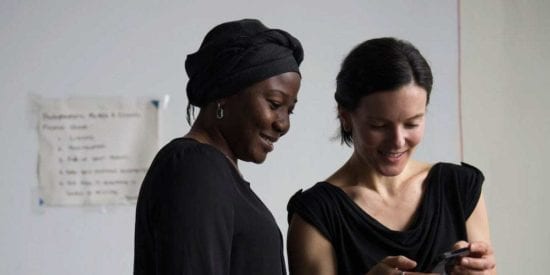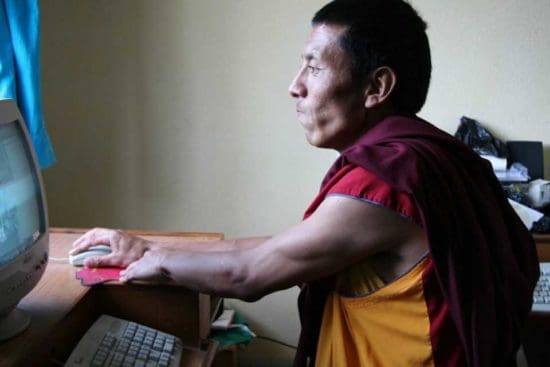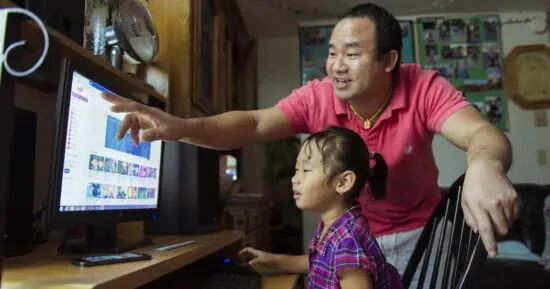Phương tiện truyền thông xã hội là gì?
Phương tiện truyền thông xã hội bao gồm các ứng dụng và trang web nơi bạn kết nối với những người bạn biết hoặc không biết, chẳng hạn như Facebook, Twitter (hiện gọi là X), Snapchat, Instagram, TikTok và WhatsApp. LinkedIn là một trang mạng xã hội khác được sử dụng cho mục đích tìm kiếm việc làm và nghề nghiệp. Ngay cả YouTube cũng được coi là mạng xã hội vì bất kỳ ai cũng có thể đăng video và bình luận.
Phương tiện truyền thông xã hội mang lại nhiều lợi ích cho người nhập cư, chẳng hạn như:
- Giữ liên lạc với gia đình và bạn bè từ đất nước của bạn
- Giữ kết nối với văn hóa của bạn thông qua các nhóm
- Tìm hiểu về cộng đồng mới của bạn và tìm kiếm các nguồn lực địa phương
- Tìm kiếm cơ hội việc làm, nội dung giáo dục và tài nguyên ngôn ngữ
10 cách để bảo vệ bản thân trên mạng xã hội
1. Sử dụng mật khẩu mạnh và duy nhất
Tạo mật khẩu mạnh cho mỗi tài khoản và sử dụng xác thực hai yếu tố để tăng cường bảo mật. Xác thực hai yếu tố sẽ thêm một bước nữa khi bạn đăng nhập, giống như mã được gửi đến điện thoại của bạn.
2. Điều chỉnh cài đặt quyền riêng tư và suy nghĩ trước khi đăng bài
Kiểm tra cài đặt quyền riêng tư thường xuyên để kiểm soát những ai có thể xem bài đăng của bạn. Hãy cẩn thận với những gì bạn chia sẻ trên mạng xã hội. Không đăng thông tin cá nhân hoặc hình ảnh có thể bị sử dụng sai mục đích.
3. Bảo vệ thông tin và dữ liệu cá nhân của bạn
Thông tin cá nhân trực tuyến được gọi là dữ liệu. Tránh chia sẻ dữ liệu quan trọng như số ID, thông tin ngân hàng, mật khẩu hoặc địa chỉ. Hãy cẩn thận khi cấp quyền truy cập vào dữ liệu của bạn cho các ứng dụng, đặc biệt là trên Facebook. Kiểm tra và cập nhật cài đặt thường xuyên để kiểm soát những ứng dụng có thể truy cập.
Không bao giờ gửi tiền cho bất kỳ ai trừ khi bạn biết chắc họ là ai. Các cơ quan chính phủ và doanh nghiệp thực sự sẽ không yêu cầu bạn cung cấp tiền hoặc mật khẩu.
4. Hãy thận trọng với lời mời kết bạn từ người lạ
Chỉ chấp nhận yêu cầu kết bạn từ những người bạn biết. Tài khoản giả có thể được sử dụng để lừa đảo nhằm đánh cắp thông tin cá nhân và tiền của bạn. Nếu bạn gặp ai đó trực tuyến và muốn gặp họ ngoài đời, hãy đến nơi công cộng có nhiều người xung quanh.
Người nhập cư có thể là mục tiêu của những kẻ xấu trên mạng xã hội. Chặn bất kỳ ai đăng bài đe dọa. Đừng trả lời họ. Tìm hiểu thêm về những việc cần làm nếu ai đó đe dọa bạn.
5. Hạn chế chia sẻ vị trí
Tránh đăng công khai vị trí thực tế của bạn, chẳng hạn như khi bạn check-in tại một địa điểm nào đó. Chia sẻ vị trí của bạn theo thời gian thực có thể cho người khác biết bạn đang ở đâu và có thể gây nguy hiểm cho sự an toàn của bạn.
6. Tránh nhấp vào các liên kết đáng ngờ
Không nhấp vào liên kết từ nguồn không xác định. Chúng có thể là lừa đảo hoặc chứa vi-rút gây hại cho thiết bị của bạn. Virus có thể cho phép người khác truy cập vào thông tin cá nhân, tiền bạc hoặc danh tính của bạn.
Hãy nhớ rằng, bất kỳ lời đề nghị nào có vẻ quá tốt thì thường là không đúng!
7. Theo dõi hoạt động bất thường
Kiểm tra tài khoản mạng xã hội của bạn để xem có hoạt động bất thường nào không, như đăng nhập không xác định hoặc bài đăng lạ. Báo cáo bất cứ điều gì đáng ngờ.
8. Giữ an toàn cho con bạn
Ngay cả khi bạn không sử dụng mạng xã hội, bạn vẫn cần phải học đủ kiến thức để giữ an toàn cho con mình. Các chuyên gia khuyên bạn nên hạn chế sử dụng mạng xã hội, theo dõi những gì con bạn xem và làm trực tuyến và trao đổi với chúng về việc sử dụng mạng xã hội.
Bắt nạt trực tuyến, còn gọi là bắt nạt trên mạng, cũng là một vấn đề đối với những người trẻ tuổi. Nó có thể bao gồm những bình luận ác ý, đe dọa hoặc lan truyền những lời nói dối về ai đó. Tìm sự trợ giúp để giải quyết nạn bắt nạt trên mạng.
9. Đừng tin mọi thứ bạn thấy trực tuyến
Mạng xã hội có thể phát tán thông tin sai lệch. Một số tài khoản đăng nội dung dối trá hoặc lừa đảo để đánh cắp thông tin cá nhân hoặc tiền của bạn.
Có hai loại thông tin sai lệch phổ biến:
- Thông tin sai lệch: Thông tin sai lệch được chia sẻ một cách nhầm lẫn
- Thông tin sai lệch: Thông tin sai lệch được chia sẻ có chủ đích, thường nhằm tạo ra cảm xúc mạnh mẽ và gây hiểu lầm cho mọi người.
Hãy thận trọng với những thông tin có vẻ cực đoan hoặc thiên vị, vì chúng có thể trông giống như được trích từ trang web hoặc hãng tin chính thức. Luôn kiểm tra thông tin từ những nguồn đáng tin cậy như trang web của chính phủ hoặc các hãng thông tấn nổi tiếng. Nếu bạn không chắc chắn thông tin đó đến từ đâu, đừng chia sẻ để tránh phát tán thông tin sai lệch.
10. Hãy cẩn thận với việc sử dụng quá mức phương tiện truyền thông xã hội
Các nền tảng truyền thông xã hội được thiết kế để giúp bạn trực tuyến. Dành quá nhiều thời gian để lướt web có thể gây hại cho sức khỏe tinh thần và năng suất làm việc của bạn. Đặt giới hạn thời gian để cân bằng thời gian trực tuyến và ngoại tuyến.
Chúng tôi mong muốn cung cấp thông tin dễ hiểu được cập nhật thường xuyên. Thông tin này không phải là lời khuyên pháp lý.


